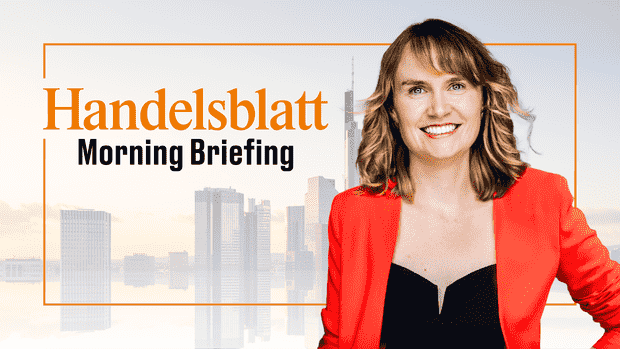Good morning dear readers,
economics has truly produced many beautiful neologisms. One of them is the so-called present-time preference. A concept that summarizes that today is more important to us than tomorrow. Or to put it in a little more detail: if we have the choice to consume something now or in the future, we prefer to consume it now.
The concept becomes the crux of climate protection. We have a present preference between the costs that we have to face now to do climate protection and the costs that we have to face later if we don’t do it. Since we prefer the now to the later, we tend to postpone necessary investments.
The principle of emissions trading is intended to counteract this effect and integrate the dynamics of the earth’s atmosphere into the logic of the market economy. Certificates for the emission of climate-damaging gases put a price tag on emissions – and thus bring the costs of missed climate protection into the here and now.
Top jobs of the day
Find the best jobs now and
be notified by email.
(Photo: imago images/imagebroker)
At the weekend, the EU decided to tighten up the concept that has been tried and tested since 2005. The number of pollution rights will be significantly reduced, so that the price will rise. The calculus: companies are being pushed to invest in clean technologies. The regulation will also apply to private individuals and small companies in the future.
However, anyone who fears the price shock at the petrol pump should rest assured: a CO2 price already applies in Germany, which is to be transferred to the European system in the future. However, it will probably be expensive for the industry. My colleague Christoph Herwartz from Brussels reports which industry is affected by the changes and to what extent.
A continent that is mostly smiled at economically and often ignored politically is Africa. Even Federal Chancellor Olaf Scholz is now saying that the southern neighbor is the new “gravitational center” of a multipolar world order.
In this mixed situation, the Federal Government, under the leadership of the Development Ministry, has drawn up a new strategy that replaces the previously applicable “Marshall Plan with Africa”. The document will be officially presented at the end of January, and the Handelsblatt has already received it.
It’s not just about local development, but also about Germany’s “enlightened self-interest” on issues such as the energy transition, a shortage of skilled workers or the diversification of supply chains.
So far, however, German company bosses have had little desire to park their money in Africa, despite repeated encouragement from politicians. Only around one percent of German direct investments go to the continent. But now that companies are unable to continue their Russian business and need to reduce their dependence on China, Africa could become more of a focus.
Another goal of the federal government is that raw materials should be mined in Africa in future in compliance with social and ecological standards. So far, minerals such as cobalt have often been mined under inhumane conditions, for example in the Democratic Republic of the Congo. Obtaining these raw materials is a no-go for German companies, and not just for moral reasons.
Because from January the Supply Chain Act will come into force in Germany. The new regulation aims to ensure that companies do not violate human rights or environmental regulations within their value chain.
In order to fulfill this, they must, for example, set up complaints procedures or appoint a human rights officer. Our legal expert Heike Anger knows exactly what companies have to consider from January.
(Photo: IMAGO/photothek)
Listening to Christoph Heusgen, the chairman of the Munich Security Conference, you get the impression that the rest of the world is rubbing its eyes in astonishment at Germany.
In the Handelsblatt interview, Heusgen reports how many ambassadors at the United Nations in New York had asked him about Germany’s economic dependence on China. Again and again he is asked there: “Have you actually learned anything? Now you are making the same mistake with China as you did with Russia.”
In 2014, at the time when Russia annexed the Crimean peninsula, Heusgen was advising then-Chancellor Angela Merkel on foreign and security policy issues. In the Handelsblatt interview today, Heusgen is certain that Germany should have stopped the Nord Stream 2 pipeline project after the Russian annexation. But back then it was said: “Russia always delivered, even during the Cold War”.
With the Russian attack on Ukraine, however, the well of Russian gas dried up along with the ever-flowing well of German good faith. “It was a mistake,” says Heusgen, looking back on the decision to complete Nord Stream 2.
Looking to the future, the expert is certain that the Ukraine war will only end with the end of the Putin regime. That is quite possible in the coming years, he predicts. Other leaders such as Mikhail Gorbachev and Nikita Khrushchev were eventually replaced.
So far, however, the Russian president is firmly seated in his presidential chair. For the next few days, Russian state television announced several speeches by Putin. The fear is that a new winter offensive could be imminent.
Of course, this morning briefing cannot help but draw attention to a humble little sporting event that ended last night. In case you haven’t noticed yet: Argentina won the men’s soccer World Cup.
Loosely based on coach icon Sepp Herberger, the motto “After the desert kick is before the desert kick” could now apply to the world association Fifa. Saudi Arabia is already considering applying to host the 2030 World Cup.
If you have the feeling that the core of football is being lost, I recommend a visit to the nearest district league club instead of the World Cup. There is no quality à la Messi or Mbappé, but knee-high slides and good beer.
I wish you a good day to start.
With sporty greetings
your
Teresa Stiens
Editor of the Handelsblatt


